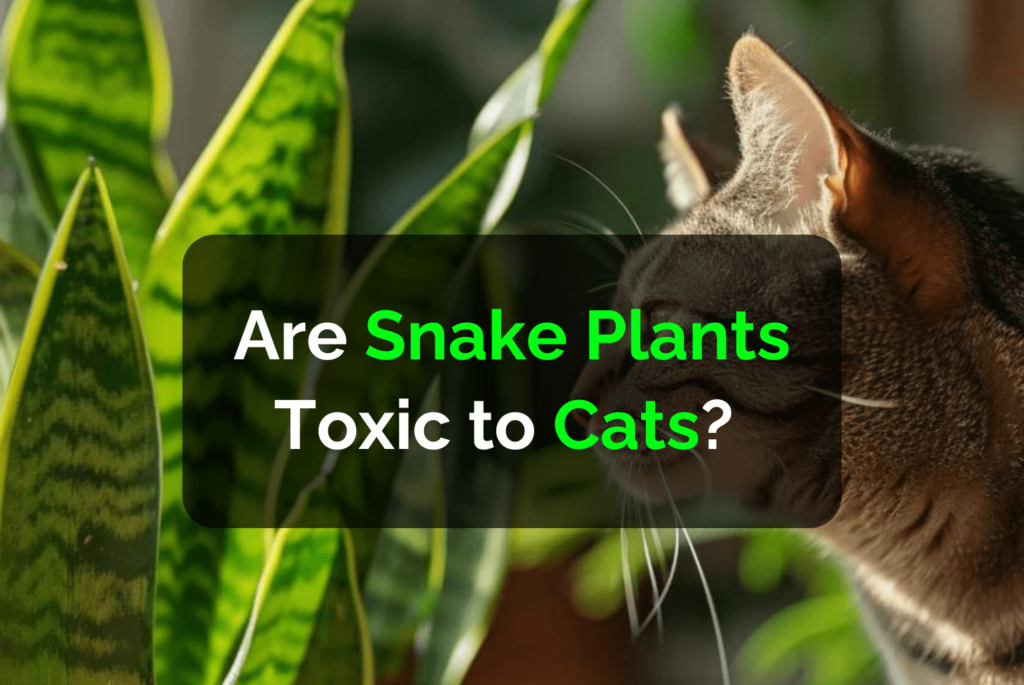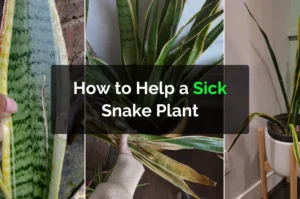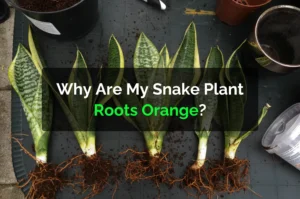When we bring houseplants like the snake plant into our homes, we often consider their aesthetic appeal and air-purifying abilities, without always knowing their impact on pet health. This post explores whether snake plants are safe for our feline friends or there is a potential risk.
Why Are Snake Plants Toxic to Cats?
Snake plants contain a natural compound called saponin. Saponin, found throughout the plant but primarily in the leaves, can cause toxicity if ingested by cats. The natural purpose of saponin in plants is to defend against insects and fungi, but for cats, it can cause irritation and health issues.
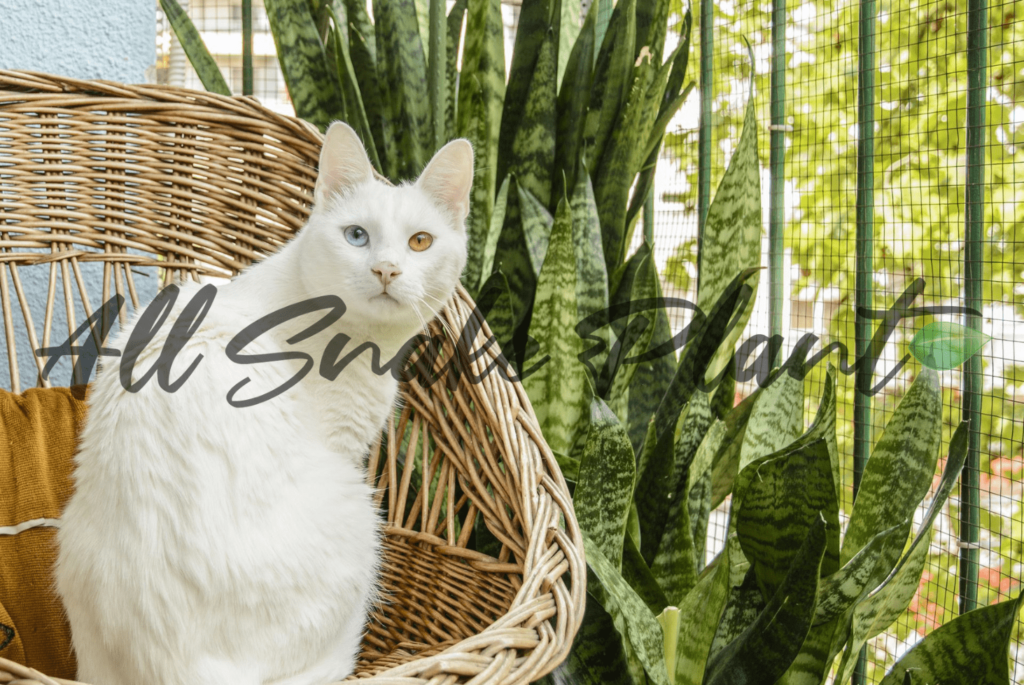
Is a Snake Plant Toxic to Cats?
Yes, snake plants are toxic to cats if ingested. They contain saponins, compounds that can cause nausea, vomiting, diarrhea, drooling, and lethargy in cats.
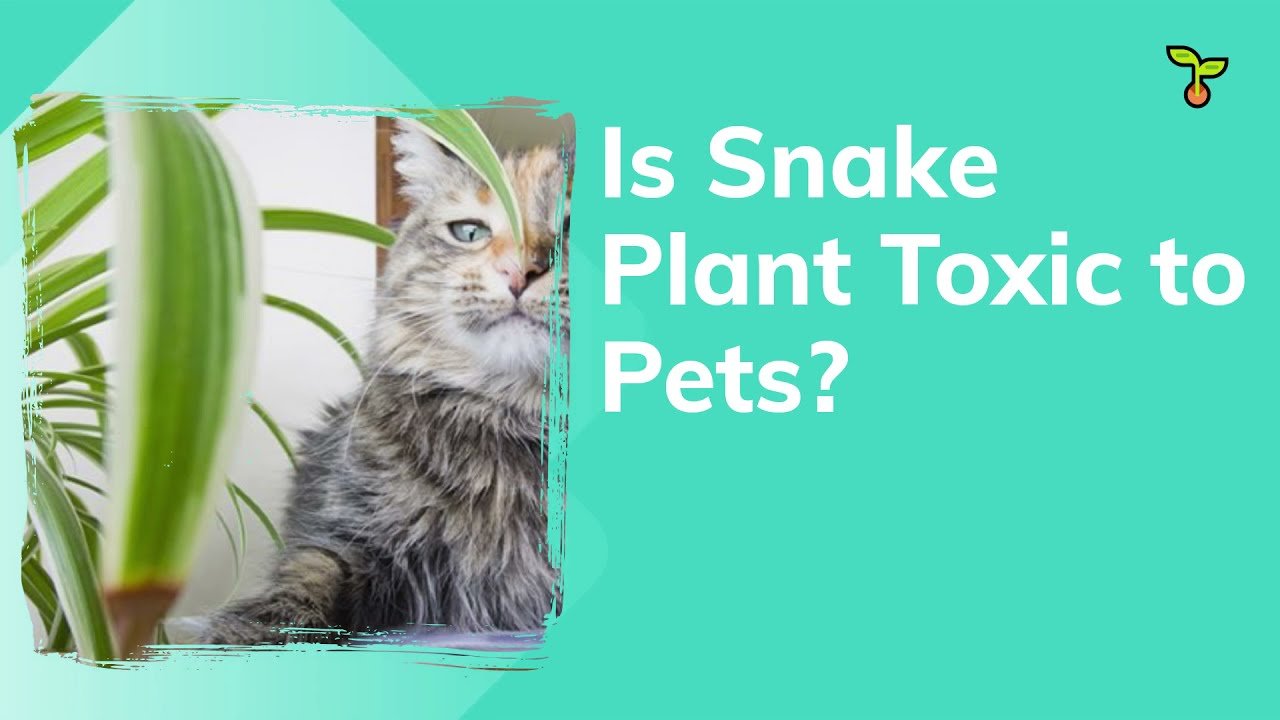
What To Do If Your Cat Eats a Snake Plant
If you suspect your cat has ingested any part of a snake plant, it’s crucial to act swiftly. Contact your veterinarian immediately for guidance. Provide them with details such as the amount ingested and any observed symptoms.
Symptoms of Snake Plant Toxicity in Cats
- Nausea
- Vomiting
- Diarrhea
- Drooling/Excessive salivation
- Lethargy (lack of energy)
- Loss of appetite
- Incoordination (in severe cases)
These symptoms can occur because the saponin acts as an irritant inside the cat’s mouth and stomach.
How To Keep Your Cats Safe from Snake Plants
Prevention is key when it comes to keeping your cats safe from snake plant toxicity.
- Place your snake plants out of reach or in areas inaccessible to your pets.
- Educate all family members about the risk these plants pose.
- Create a physical barrier around the snake plant.
- Cats dislike the scent of citrus, so place orange or lemon peels near the plant as a deterrent.
Treating Snake Plant Toxicity in Cats
Treatment typically involves symptomatic care, which may include hydration therapy and medications to control nausea and diarrhea. Always follow the advice of your vet, who will tailor treatment to the based on your cat’s symptoms. In critical cases, hospitalization may be necessary. Additionally, consider opting for pet-safe houseplants like spider plants, Swedish ivy, or certain ferns to eliminate any potential risks altogether.
How to prevent snake plant poisoning
The absolute best way to prevent snake plant poisoning is to not have these plants in a house with cats. However, if you’re determined to keep your snake plants, the tips above on keeping cats away should help minimize the risk.
Are all parts of snake plants poisonous to cats?
Yes, all parts of a snake plant contain saponins, making the entire plant toxic to cats.
How to Stop Cats from Eating Snake Plants
To prevent cats from chewing snake plants, try the following methods:
- Apply natural repellents like citrus sprays on the plants.
- Provide an alternative to your cat with plenty of safe plants to chew on, like cat grass
- Place physical barriers, such as plant covers or mesh, around your snake plants.
Frequently Asked Questions (FAQs):
Are there any non-toxic alternatives to snake plants?
Yes, several houseplants like spider plant, Boston fern, and bamboo palm are safe for cats.
How quickly do symptoms appear after a cat eats a snake plant?
Symptoms can appear within a few hours of ingestion, depending on the amount consumed and the individual cat’s sensitivity.
Are snake plants safe for other pets?
Snake plants can also be toxic to dogs and other household pets if ingested. Similar precautions should be taken to keep all pets safe.

